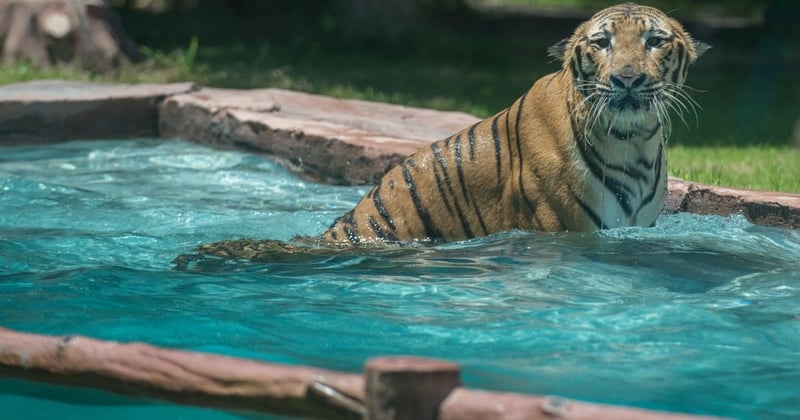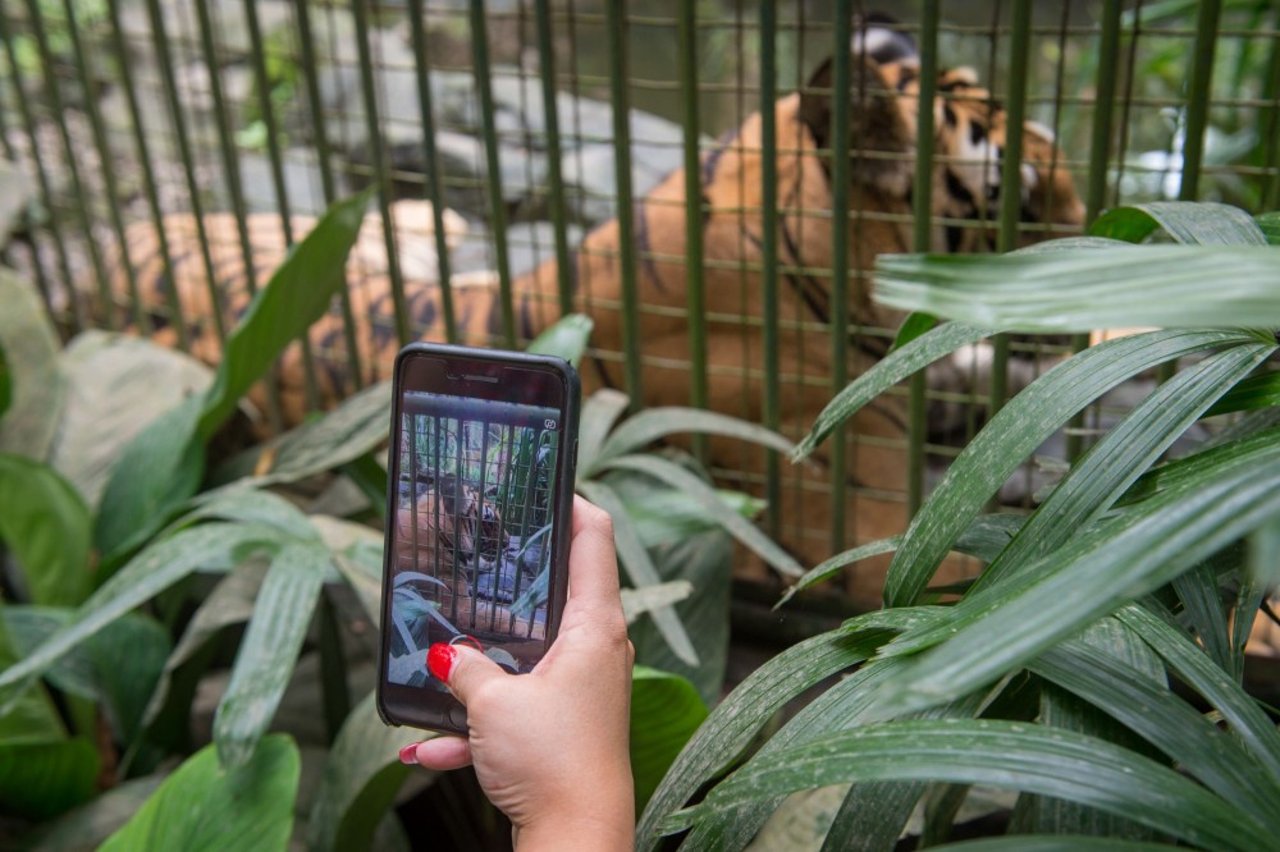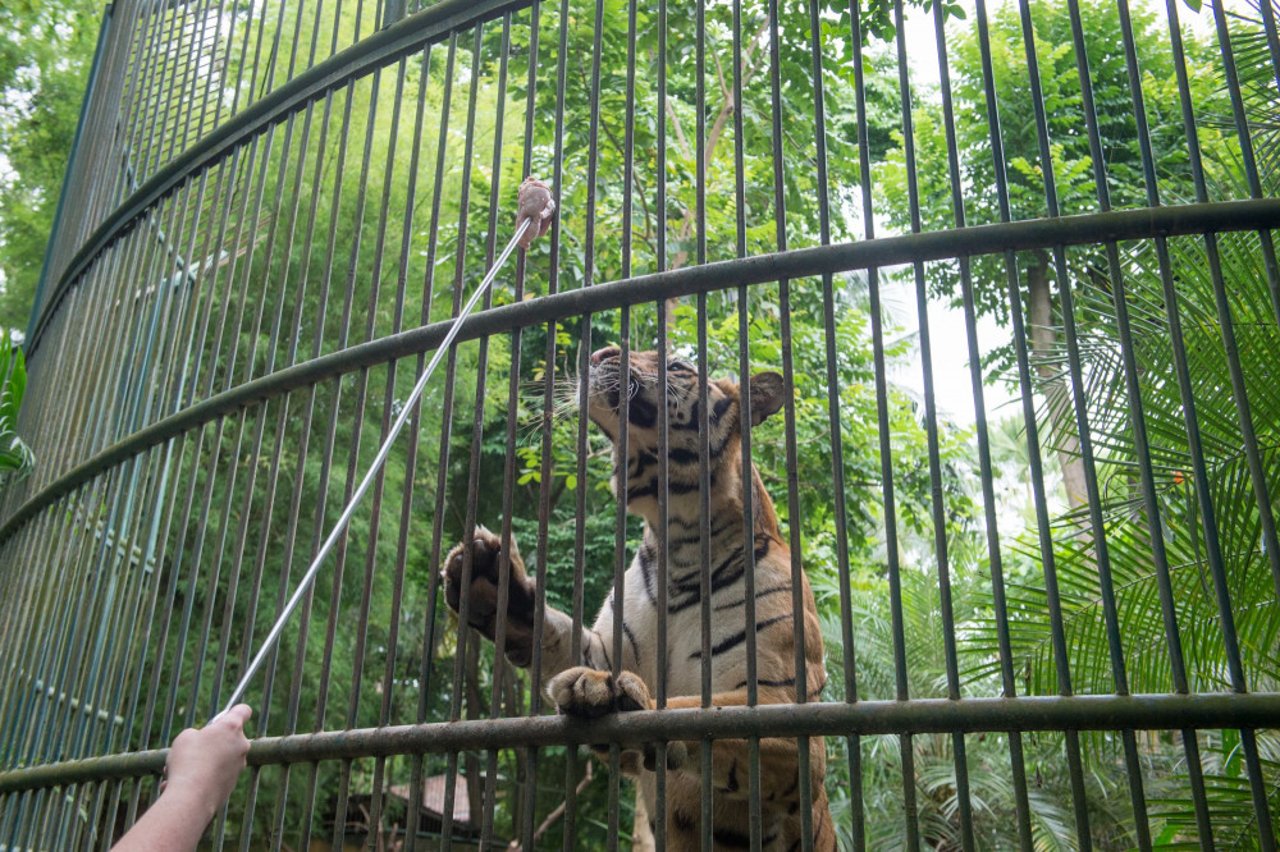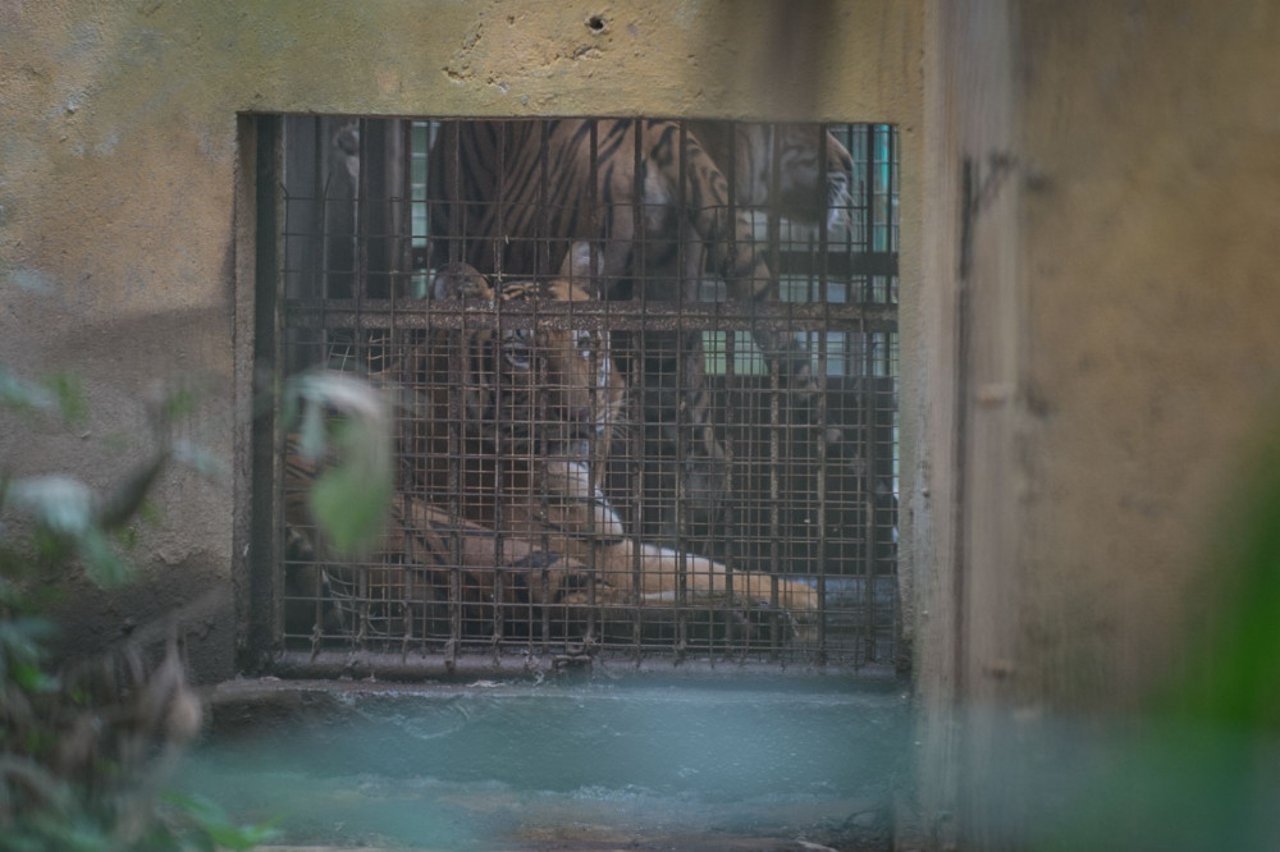
Tiger torture: It's time to end the show
News
Tigers are considered an endangered species by the UN. At several wildlife attractions in Bali, captive tiger numbers are increasing. Contrary to some beliefs, these venues only cause intense suffering for captive tigers, while maintaining demand and financial incentives to poach/trade from the wild
Tourist demand for tiger shows and selfies is fuelling abuse across wildlife tourism venues in Bali. Tigers are cruelly poached from the wild or bred in captivity to be used in the wildlife tourism industry.
Our investigative team uncovered shocking conditions in all venues that housed wild tigers. None of the venues that housed tigers met even the most basic standards for animals in captivity.
Wildlife. Not Entertainers
We observed 15 tigers across wildlife venues in Bali. Tigers were forced to perform daily shows, running, jumping, begging on command, and being made to swim to entertain large crowds of tourists; all to the sound of blaring music and loudspeakers.
Trainers at the venues frequently deprived the tigers of food in the lead-up to their performances. This is designed to make them more obedient and more likely to respond favourably to bribes of food.
After long hours entertaining tourists, tigers are returned to barren cages. One of the most concerning aspects of the tiger venues was the inadequate housing conditions available.
In some of the worst cases, tigers were housed in cages between 6-20 square metres in size. These tiny cages did not have any enrichment like dirt or grass, which further limits the ability of captive tigers to perform their natural behaviours.
75% of the tigers housed in concrete cages displayed stereotypies or unnatural behaviours, including head weaving, and pacing along the boundary of their enclosure. These are signs of lasting psychological distress. The concrete floors also impact on their physical health as the hard surface is known to cause footpad abrasions in big cats.
Become part of the solution
Reducing tourist demand for cruel wildlife attractions like tiger shows and selfies is vital in ensuring that tigers remain in the wild, where they belong. That’s why we’re calling on all travellers, whether here in Australia or abroad, to make ethical travel choices.
If you can ride, hug, or have a selfie with a wild animal like a tiger, you can be sure it’s cruel.
There’s no excuse. It’s abuse.
Trainers at the venues frequently deprived the tigers of food in the lead-up to their performances. This is designed to make them more obedient and more likely to respond favourably to bribes of food.


